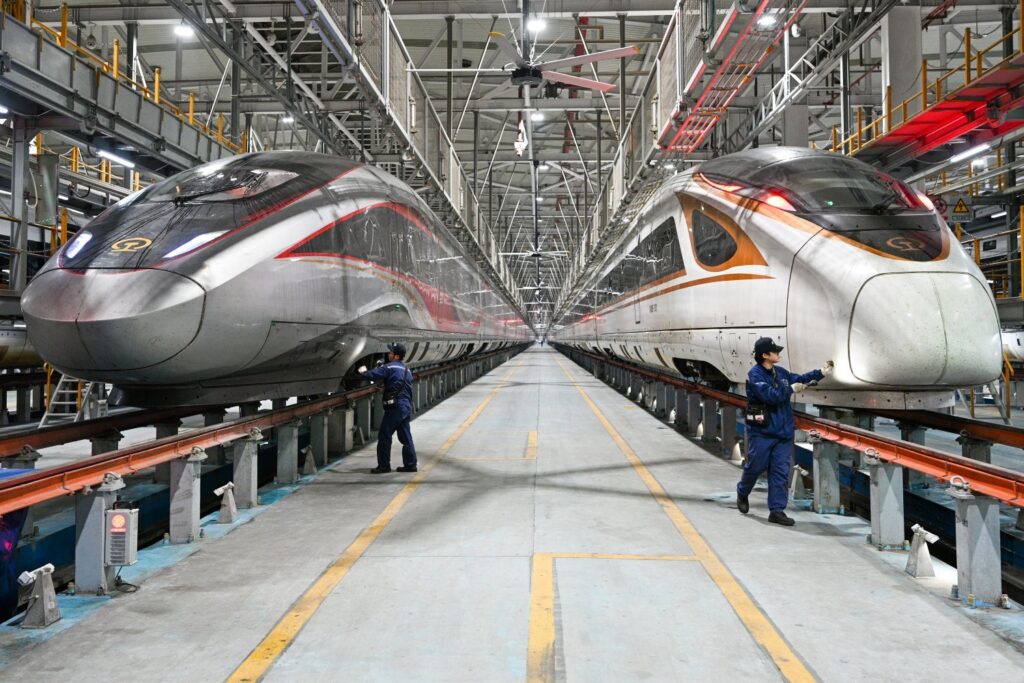They’re speeding toward a faster future in China, thanks to a new model of high-speed bullet train. Over the weekend, state-owned rail operator China State Railway Group unveiled a prototype for its CR450 train, which it claims will be the fastest commercial high-speed railcar in the world.
As reported by the South China Morning Post, the CR450 will be able to reach peak speeds as high as 280mph (450km/h) and will have a top commercial operating speed of 250mph (400km/h). For comparison’s sake, the state’s rail operator’s current CR400 trains operate at about 220mph (350km/h). The CR450 will be able to complete the 700-mile journey from Beijing to Shanghai in about 2.5 hours, according to state-owned news organization Yicai Global.
While the CR450 is still in the prototype stage, producing a train capable of those top speeds is a technological and engineering achievement. According to a press release from the Chinese government, the CR450 will weigh 10% less than its predecessors and will lower operational resistance—the force needed to move the train—by 22%. The train’s bogie enclosure—the framework that covers the wheels—can reduce air resistance at faster speeds, and a “low-drag, sharp-nosed front” and aerodynamic windshields help the CR450 maintain its peak acceleration.
As impressive as the CR450 promises to be, there is a difference between being capable of certain speeds and actually achieving them. France’s TGV train hit 357.2 mph back in 2007, which remains a record for conventional wheeled passenger trains. But in practice, the TGV averages speeds of around 175mph. China already operates the fastest commercial trains in the world, with several routes that routinely hit 217mph. But to push those top speeds even higher, it requires ensuring that tracks are properly aligned to support it.
According to infrastructure consulting firm AECOM, the faster a train goes, the more curve radius is needed to ensure the vehicle can safely take a turn without needing to either significantly slow down or risk serious danger. That radius gets exponentially bigger the faster you go. Per AECOM, a train going 224mph requires a curve radius of about 6.2 miles to maintain speed. Bump that up to 250mph, and you’ll need 7 miles to follow the bank without tanking at top speeds.
The Chinese government says the CR450 will be in operation “as soon as possible.” Meanwhile, Californians are still waiting for its high-speed rail project—now nearly two decades since its first approval—to produce its first operational passenger service. Hopefully, the trains will be faster than construction.


